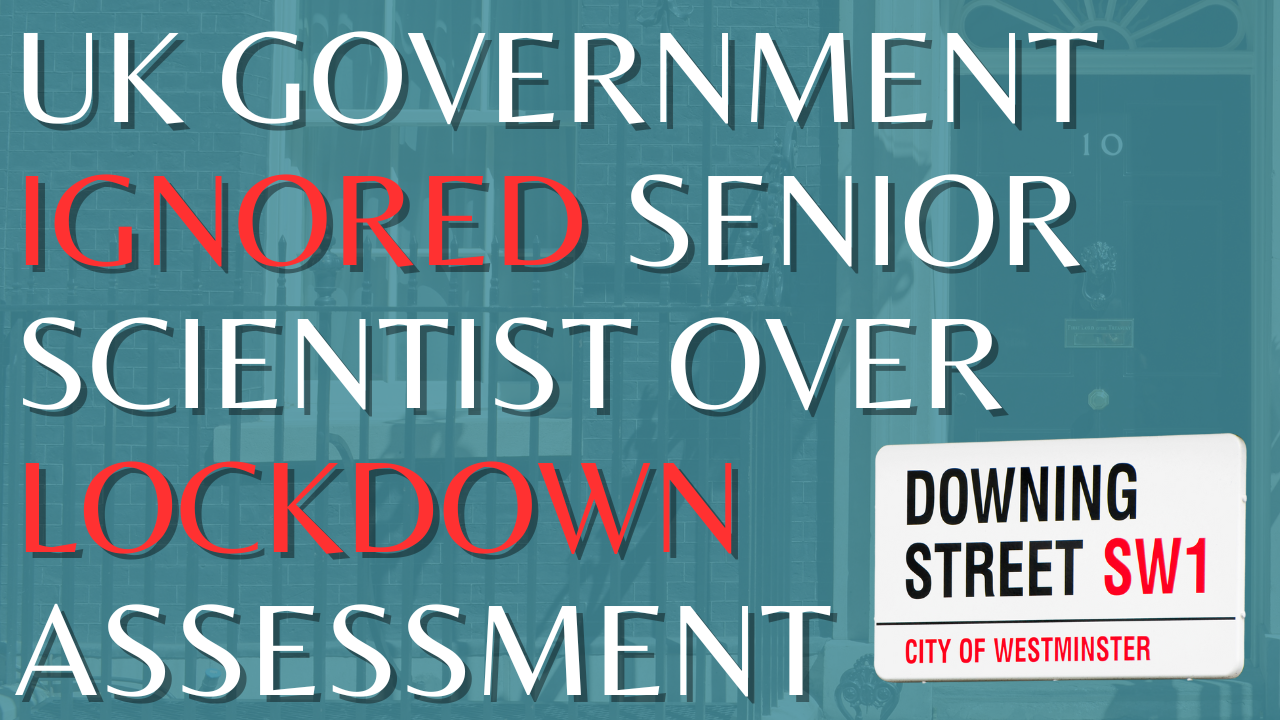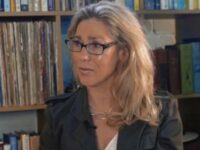Government ignored senior scientist over lockdown assessment
A senior architect of the original British pandemic plans revealed how the government ignored his request to see its lockdown risk assessment – until eventually admitting it hadn’t done one.

Dr Peter Grove, former chair of the government’s pandemic modeling group ‘Spi-M‘ was responsible for ‘impact’ estimates of new health policies before the Covid outbreak. He wrote to the Department of Health at the start of the pandemic, asking to see an impact assessment weighing up whether the cost of ‘suppression’, or lockdown, would outweigh its potential benefits.
Until Covid, impact assessments – which evaluate the economic and social costs and benefits of government policies – had always been routine practice for health interventions.
Dr Grove, who had retired shortly before the pandemic struck, said he thought it “bizarre” a UK lockdown was imposed without any such assessment. This was despite the fact that “many, including some people in Parliament, had been crying out for one.”
He therefore carried out his own and discovered lockdown was not worth doing according to the government’s own risk/benefit calculus – even if assessed when little was known about the virus at the start of the pandemic.
In a Freedom of Information request on 18 March 2020, Dr Grove asked the Department of Health and Social Care if it had carried out any impact assessment. He had no reply. He made a second request on 24 November 2020 and received a reply to say still none had been done. He said:
“This, like much of the government’s pandemic response, seemed bizarre to me. “I have no direct evidence, but my suspicion, given the politically led nature of the response to Covid, is that the government simply did not want to know the answer.”
Dr Grove, had previously been a senior advisor to the Department of Health and Social Care on pandemic preparedness. His role included chairing its pandemic modeling group – SPI-M, as well as the Department of Health’s Senior Analytical and Economic Review Committee. The latter advises Ministers on the effectiveness and costs of new programmes.
Speaking exclusively to CG, Dr Grove said:
“The government has to decide how to make best use of limited public resources for any public health measure. This should consider not only the health gains, including lives saved by those measures, but the social cost (not simply financial) of the measures themselves including potential lives lost which could have been saved by an alternative use of the resources. “The lockdown policy led to fractured lives, and inevitably illness and deaths. It must be wrong that no estimate of these impacts was made in advance. The social costs of the lockdown will have major deleterious impacts on real people that will continue for very many decades.”
He explained that due to finite resources government spending tradeoffs have to be made all the time, for example roads and motorways are built even though lives are lost in road traffic accidents:
“Society constantly chooses to use its resources to do other things rather than simply save lives. Society wants to have motorways despite the lives lost in high speed accidents. Impact assessments are there to make these trade off calculations and are calculated on how society chooses to value a life across all the other decisions made by society.”
Similar principles of government decision making have recently led the government to reject the use of the Alzheimer’s drug donanemab and the breast cancer drug trastuzumab deruxtecan, as while these these are of of some effectiveness, they would take away resources more effectively used elsewhere thus leading to net harms.
After Dr Grove discovered the government had not carried out an impact assessment in November 2020 he used a range of academic publications and official data collected over the course of the pandemic, at home and abroad, to construct his own, which he sent to various officials, including to MPs.
Dr Grove based his assessment on the paper by Professor Neil Ferguson and his team at Imperial College which he says “seems to have been the main inspiration of ’lockdown policies.”
The paper compared the UK existing mitigation policy – including for example, advising those ill and their family members to stay at home, possible social distancing of the vulnerable and short targeted closure of places of education at the epidemic peak – with a ‘suppression’ or lockdown policy.
The Imperial Paper looked solely at the direct health impacts of lockdown and made no attempt to quantify the costs of these policies except to note the costs of a suppression (lockdown) policy would be ‘profound’. Dr Grove then estimated and added in the costs.
He discovered that even using a worst case scenario for the deadliness of Covid and a best case scenario for the effectiveness of lockdown, the lockdown harms still outweighed its benefits. This was due to the “clearly disastrous” costs to society of lockdown compared to the original ‘mitigation’ strategy which was, in fact, followed by Sweden.
Dr Grove said:
“It is true that at the start of the pandemic it was probably felt we were in an emergency situation and you may reasonably expect governments not to produce impact assessments initially. “However, the pandemic response went on for months and years and had a continued major effect on the whole country. There was no rational reason not to do an impact assessment later on – assuming you wanted to know if the benefits outweighed the costs.”
“My impact assessment showed that the lockdown had a large impact on the British economy which many people, especially those who are poor, will pay for many decades. At the same time there was a massive transfer of wealth to the rich. We are now seeing effective austerity measures by the government which are, at least in part, significantly linked to the lockdown policy. My impact assessment showed that whatever range you used, the benefits of lockdown were not outweighed by the harms and the net benefits were always better following a mitigation strategy.“
“There are diseases awful enough that a suppression or lockdown policy would make sense. I have argued for their inclusion in the government’s register of risks so plans can be made to combat them. Sweden shows Covid was not one of them. My Impact Assessment shows this would have been clear from the beginning of the pandemic had the appropriate analysis been undertaken.
A Department of Health spokesperson declined to comment.
